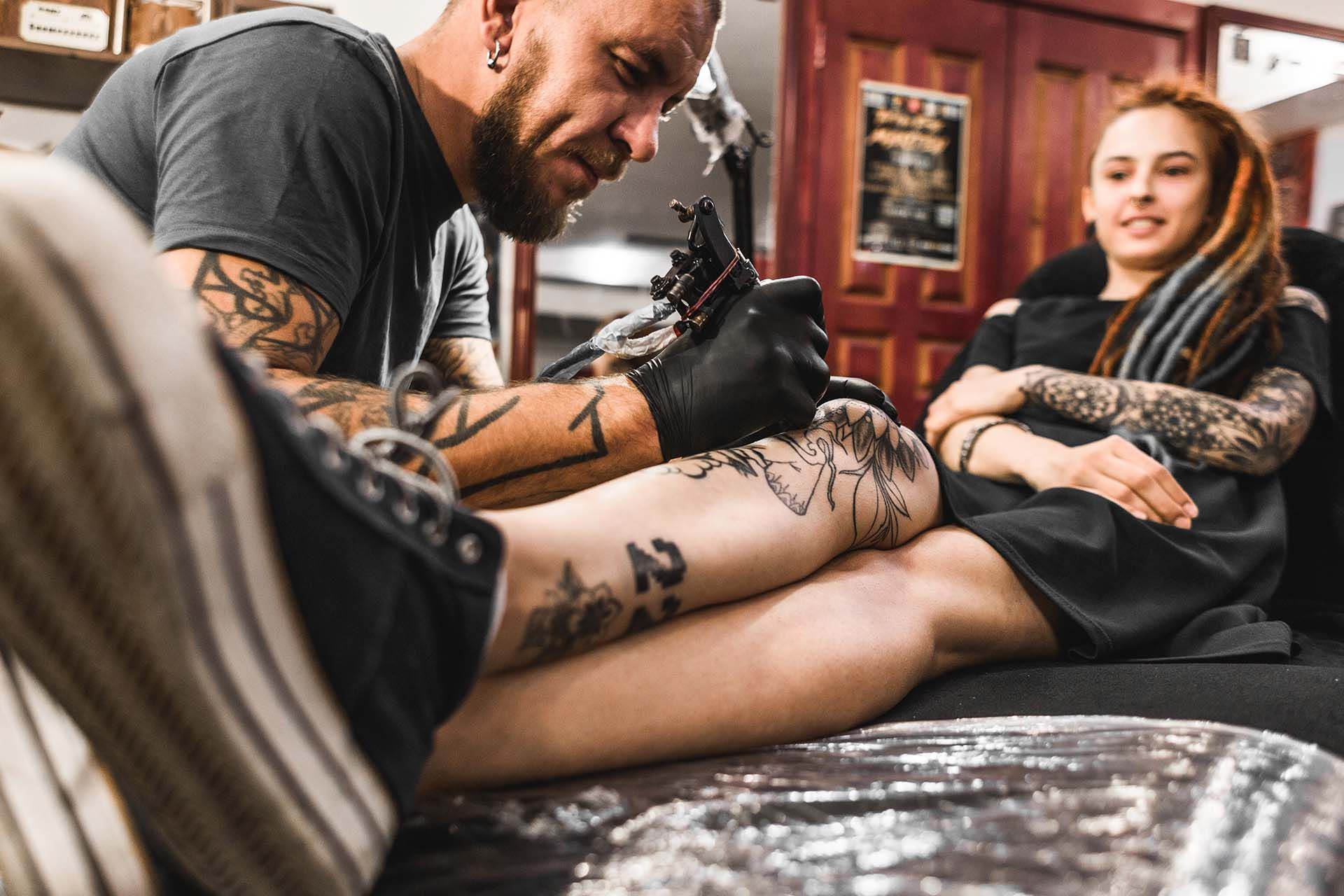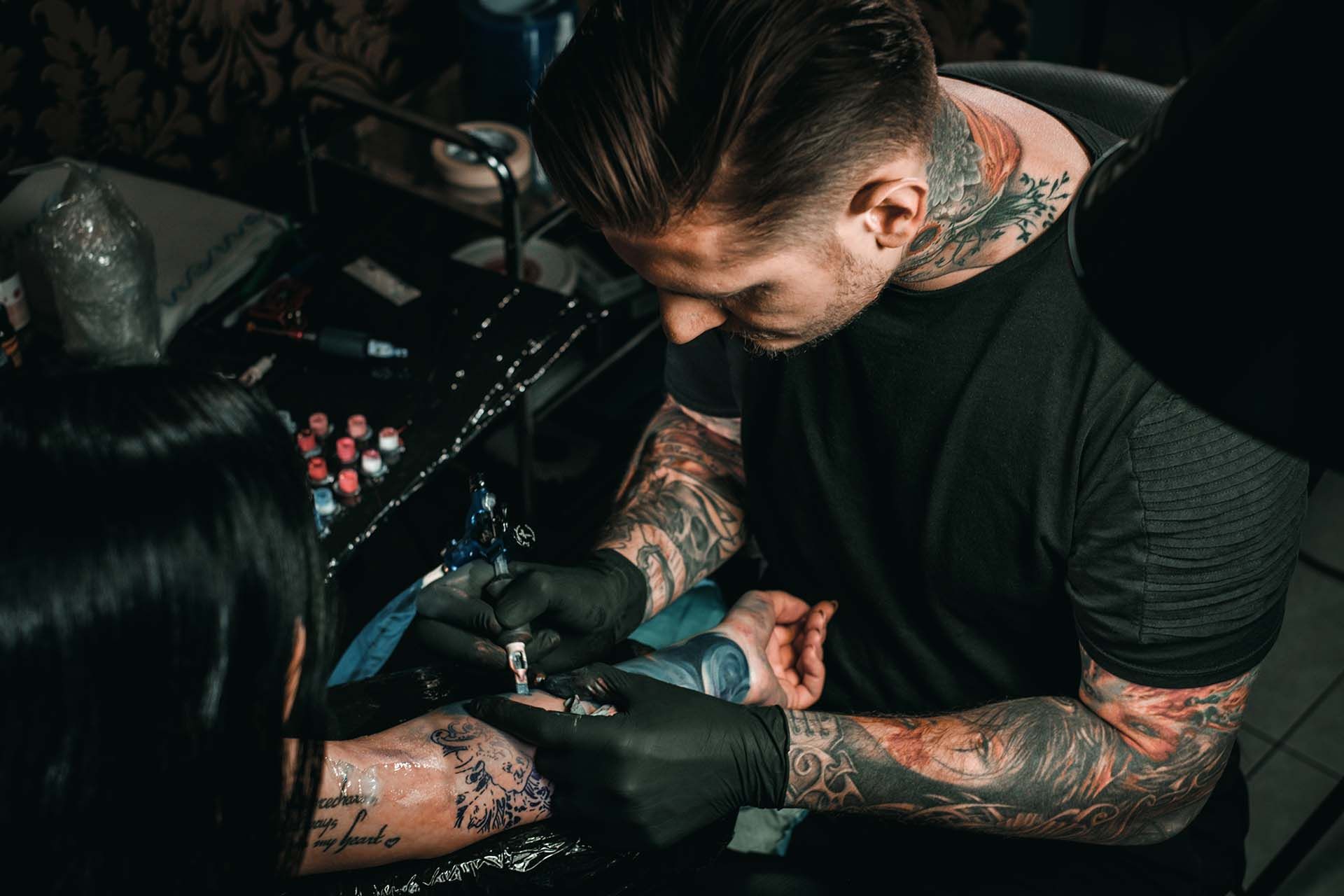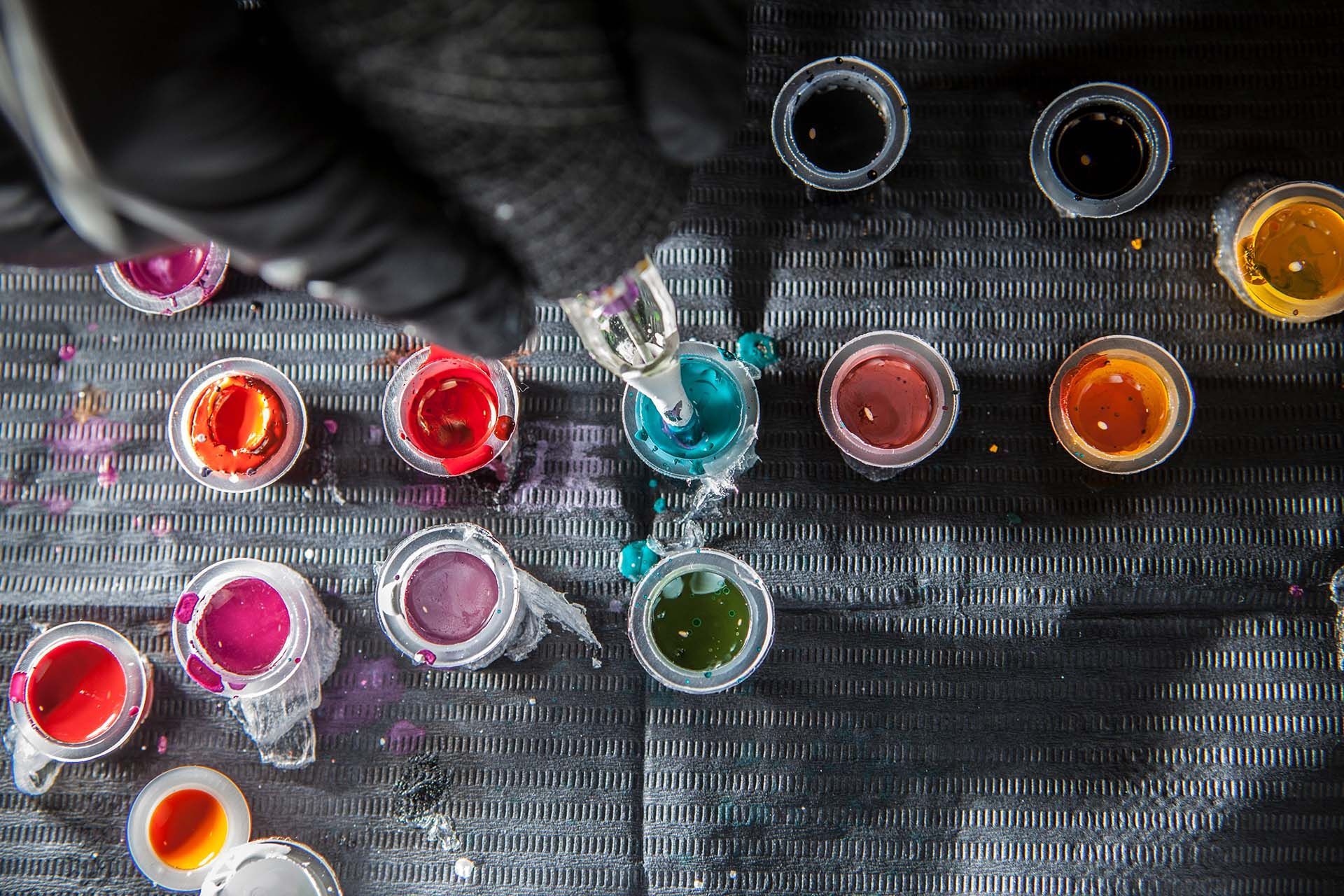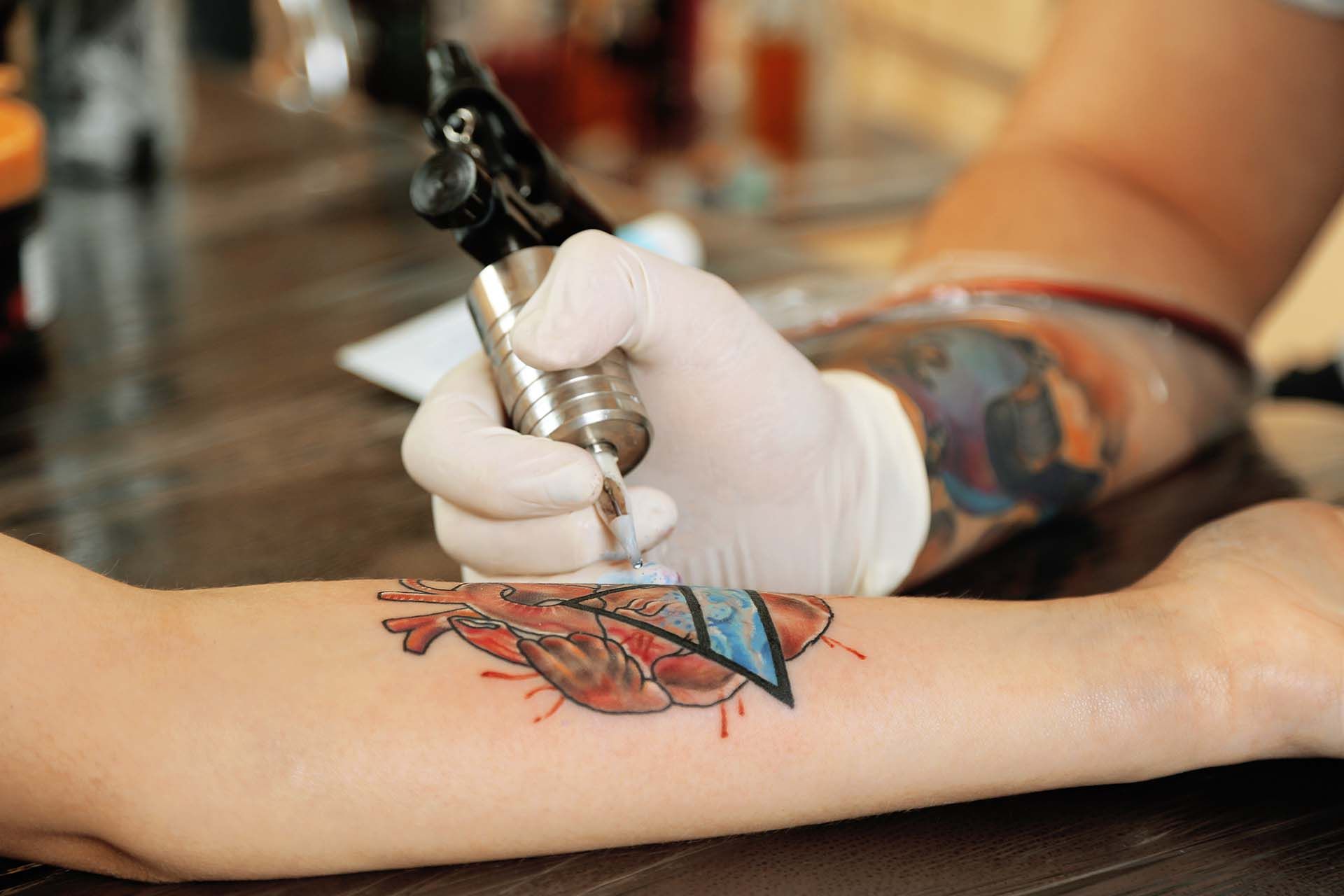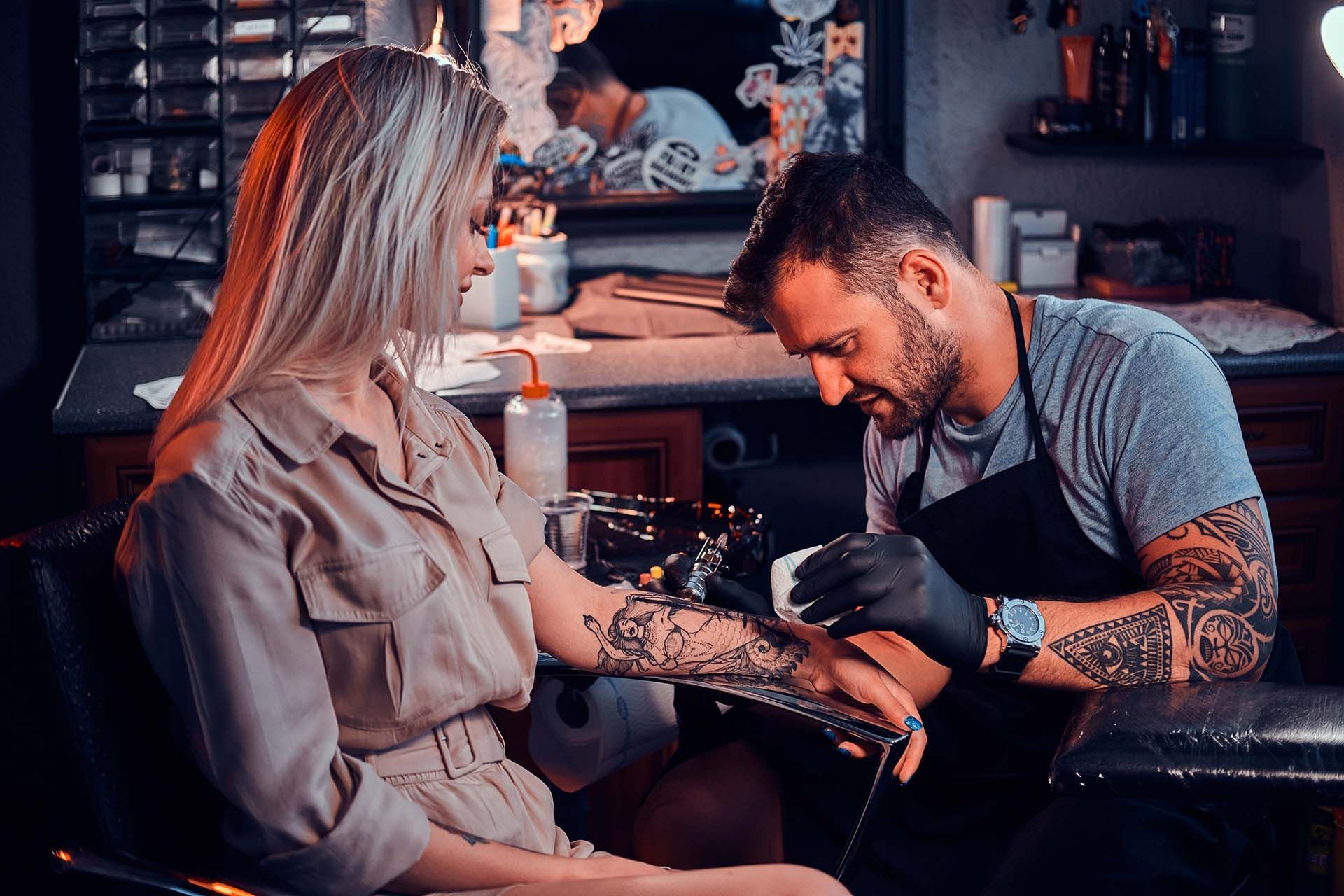Exploring the Best Tattoo Gloves Used by Tattoo Artists
Entering the world of tattooing for the first time involves many decisions. Among these, one of the most crucial choices is selecting the best tattoo gloves. After all, these aren't just ordinary
gear; they play a direct role in protecting both your hands and the client's skin. Yet, with so many types on the market, it can be hard to figure out which tattoo gloves to buy. To help you through this process, we've compiled the following guide that will break down each type of glove so you can make a well-informed decision.
Disposable Gloves
Of course, tattoos are a form of art, but they are also a medical procedure of sorts. Thus, ensuring a sterile environment is fundamental. Disposable gloves become essential in this regard, as they guarantee a fresh, uncontaminated pair for every new client. And more importantly, they help uphold stringent hygiene standards.
These gloves are available in various materials, such as latex, nitrile, and vinyl, each presenting distinct advantages and disadvantages. Here are some key considerations for disposable tattoo gloves:
- Safety: These gloves are essential for maintaining a sterile workspace.
- Versatility: Available in various materials to cater to different needs and preferences.
- Cost-Efficient: Generally affordable, making it easy to stock up in bulk.
Latex Gloves
Latex gloves have been a staple in the tattoo industry and are favored for their elasticity and comfort. They offer a second-skin feel, providing artists with the dexterity needed for detailed work. However, the rising tide of latex allergies has seen a shift in their universal acceptance. Hence, for some artists, they are no longer considered the best tattoo gloves.
So, here's what you should know before choosing latex gloves:
- Comfort: Provide a tight and comfortable fit while allowing you to feel things clearly.
- Natural Material: Made from natural rubber.
- Allergy Concerns: Not suitable for those with latex allergies
Nitrile Gloves
For those seeking an alternative to latex, nitrile emerges as a front-runner. These gloves are crafted from synthetic rubber, offering a similar feel to latex without inciting allergic reactions. They're renowned for their durability and resistance to punctures, chemicals, and viruses.
Here are the main benefits of nitrile tattoo gloves:
- Flexibility: Allow artists to work with precision.
- Strength: More resistant to punctures compared to latex.
- Allergy-Free: Ideal for artists and clients with latex sensitivities.
Vinyl Gloves
Vinyl gloves are another latex alternative, particularly praised for being a cost-effective option. While they may not be as durable as latex or nitrile gloves, they are latex-free and can be a suitable choice for shorter, less complex tattoo sessions.
Here are the key takeaways for vinyl tattoo gloves:
- Economical: A budget-friendly option.
- Latex-Free: Suitable for those with allergies.
- Less Durable: Not ideal for long or intricate tattooing sessions.
Choosing the Right Gloves
Choosing the best pair of tattoo gloves is a fundamental aspect of the art and safety measures in tattooing. However, it's not just about the material; factors like fit, durability, and preventing cross-contamination also come into play.
But also keep in mind that the decision is highly personal, as it's influenced by your working style, the intricacy of your designs, and the requirements of your clients. That said, here are the main factors to consider when choosing the best tattoo gloves:
- Fit: A proper fit ensures comfort and precision.
- Durability: Essential for maintaining a sterile environment throughout the session.
- Client Safety: Considerations for allergies and sensitivities are paramount.
- Material: Choose a glove material (latex, nitrile, vinyl, etc.) that suits your preferences and requirements, taking allergies and sensitivities into account.
- Thickness: The thickness of the gloves can affect your tactile sensitivity and dexterity, so choose accordingly.
- Grip: A good grip is essential for handling equipment and maintaining control during the tattooing process.
- Cost:
Different glove materials and brands come with varying price points, so factor in your budget when making a choice.
Ready to Ink?
At the end of the day, picking the best tattoo gloves boils down to balancing your comfort and everyone's safety. It's about gloves that feel right, letting your skills shine, and ensuring each tattoo is a piece of art made safely. So, choose wisely and happy inking!
FAQs
Types of Gloves Tattoo Artists Use
If you're planning to get a tattoo, you may be wondering about the types of gloves tattoo artists use. Here are some frequently asked questions:
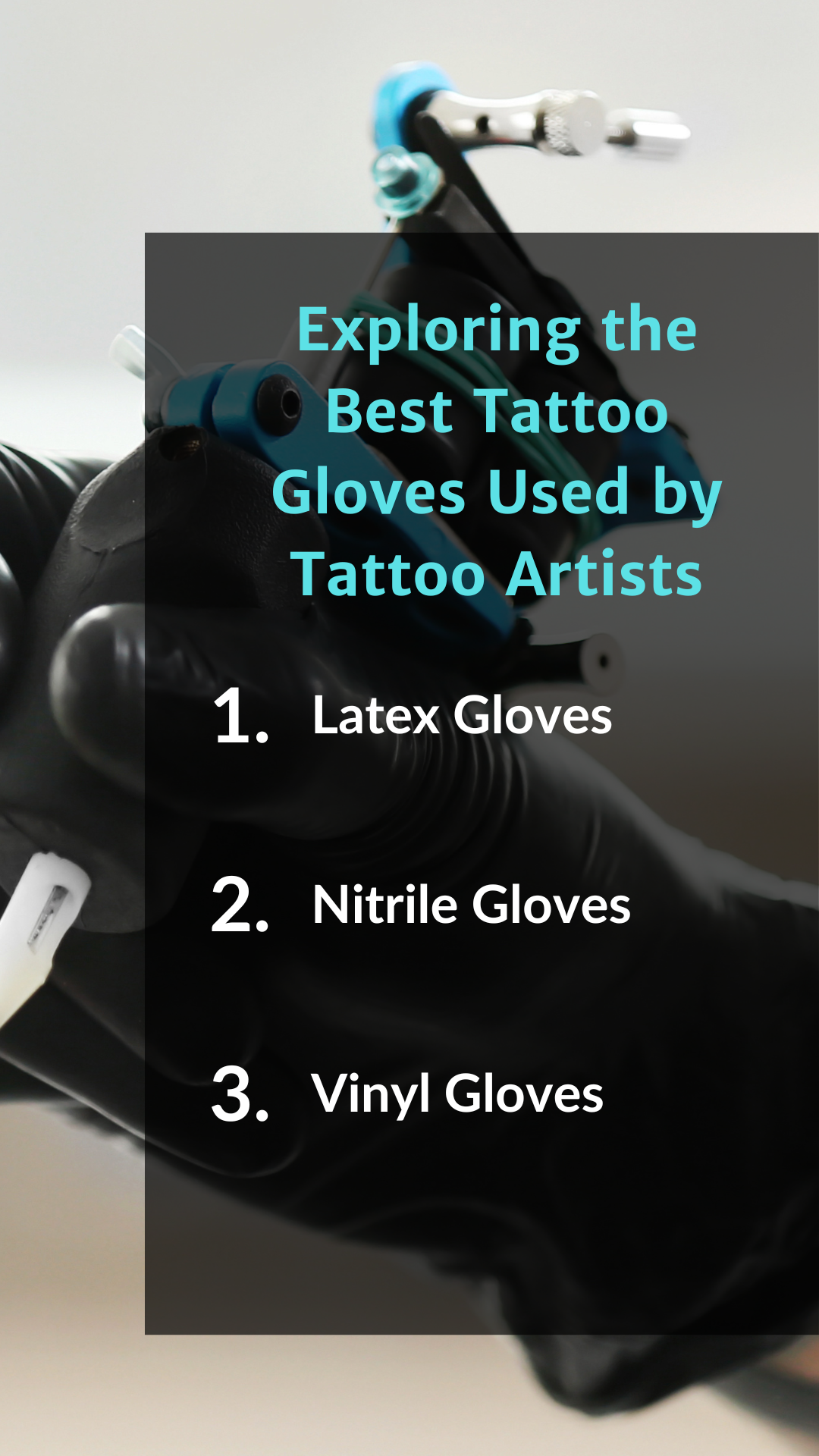
Disclaimer: This publication and the information included in it are not intended to serve as a substitute for consultation with business consultants and professionals. Specific business, financial, legal issues, concerns and conditions always require the advice of appropriate professionals. Any opinions expressed are solely those of the participant and do not represent the views or opinions of this company.

